The Brill Building Covered Vol 1
It might be the greatest hit machine in pop history, in the good company of Tin Pan Alley and Motown; its influence on pop music was pivotal. The Brill Building was in New York, but the songs were recorded on both sides of the US coast, and anywhere in between.
The Brill Building, at 1619 Broadway on 49th Street in Manhattan, serves as the collective term for the song factory that created an incredible string of classic pop hits in the 1960s. It was really an office block of music publishers, housing 165 of them in 1962. The songs were mostly written up the road, such as in the buildings at 1650 Broadway, HQ of Aldon Music, and at 1697 Broadway, the latter also housing the CBS TV auditorium, now known as the Ed Sullivan Theater.
The scene was a veritable hit conveyor belt, with songwriters working their 9 to 5s in cubicles, expected to turn in their masterpieces at regular intervals, often at command. Many of these songwriters, usually teams of two, have become legends in the trade: Carole King & Gerry Goffin, Doc Pomus & Mort Shuman, Jeff Barry & Ellie Greenwich, Neil Sedaka & Howard Greenfield, Cynthia Weil & Barry Mann… Some of these were supervised by another legendary pair of writers, Jerry Leiber and Mike Stoller, or by impresarios such as Don Kirshner, the co-owner of Aldon Music who’d later launch The Monkees. Neil Diamond launched his superstar career from the base of the Brill Buildings, were he started out as a songwriter, as did a youngster named Jerry Landis, whom you’d now address as Paul Simon, and the great, underrated Laura Nyro.
The Brill Building became a byname for a sound in the early 1960s, when producers like Phil Spector recorded them with acts like The Ronettes and The Chiffons (also receiving co-writing credits on some), and bands like the Beach Boys borrowed their songs. Many of the songs were recorded in LA with the backing of The Wrecking Crew, a group of session musicians on whom I intend to spend some time in future posts. In New York, acts like The Drifters relied on the Brill Building to supply their long string of timeless hits. British acts also recorded the Brill Sound. The Searchers did several, The Animals scored a huge hit with one, as did Manfred Mann, and The Beatles played one track, featured here, at their ill-fated Decca audition (they later recorded The Cookies’ “Chains”, written by Gerry Goffin and Carole King).
It is sometimes argued that the Brill Building scene tamed rock & roll. Here music was run by business people as a business. The spontaneity and rebellion of the individualistic rock & roll was now displaced by managed calculation with both eyes on the bottomline, the argument goes.
I don’t quite buy it. When RCA signed Elvis, it calculated on his image. Most labels did the same. In fact, rock & roll had been tamed by the time Phil Spector collaborated with Greenwich and Barry to create hits like “Be My Baby”. Almost concurrent with the Brill Sound, Barry Gordy in Detroit constructed another hit factory that was rooted entirely in commercial calculation. In both instances, the entrepreneurs made their money, and we received a rich legacy of astonishing music.
Rock & roll would soon reassert its rebellion anyway, with the advent of the Rolling Stones, Hendrix, The Who and so on. At the same time, the Brill Building left us with an arsenal of incredible, timeless songs. Featured here are 26 of them, mostly covers. If the mix goes down well, there’ll be a second volume to include all the songs you just cannot believe I have omitted.
As always, the mix is timed to fit on a standard CD-R, and includes home-composed covers. PW is the same as always (if you don’t know, look here)
1. The Beach Boys – I Can Hear Music (1969, Jeff Barry, Ellie Greenwich & Phil Spector)
2. Dion and The Belmonts – Save The Last Dance For Me (1960, Doc Pomus, Mort Shuman)
3. The Four Seasons – Breaking Up Is Hard To Do (1964, Neil Sedaka & Howard Greenfield)
4. Helen Shapiro – It Might As Well Rain Until September (1964, Carole King & Gerry Goffin)
5. Martha Reeves & The Vandellas – Then He Kissed Me (Jeff Barry, Ellie Greenwich & Phil Spector)
6. The Searchers – Da Doo Ron Ron (1963, Jeff Barry, Ellie Greenwich & Phil Spector)
7. Françoise Hardy – Will You Love Me Tomorrow (1968, Carole King & Gerry Goffin)
8. Laura Nyro – Up On The Roof (Live) (1971, Carole King & Gerry Goffin)
9. Cissy Houston – Be My Baby (1971, Jeff Barry, Ellie Greenwich & Phil Spector)
10. Peggy Lee – (You Made Me Feel) Like A Natural Woman (1969, Carole King & Gerry Goffin)
11. Dusty Springfield – That Old Sweet Roll (Hi-De-Ho) (1969, Carole King & Gerry Goffin)
12. Dobie Gray – River Deep, Mountain High (1973, Jeff Barry, Ellie Greenwich & Phil Spector)
13. The 5th Dimension – Soul And Inspiration (1974, Barry Mann & Cynthia Weil)
14. The Persuasions – Chapel Of Love (1979, Jeff Barry, Ellie Greenwich & Phil Spector)
15. The Beatles – Take Good Care Of My Baby (1962, Carole King & Gerry Goffin)
16. The Walflower Complextion – Hanky Panky (1966, Jeff Barry & Ellie Greenwich)
17. The Mamas and The Papas – Spanish Harlem (1966, Jerry Leiber & Phil Spector)
18. Carpenters – One Fine Day (1973, Carole King & Gerry Goffin)
19. Roberta Flack & Donny Hathaway – You’ve Lost That Lovin’ Feelin’ (1972, Barry Mann, Cynthia Weil & Phil Spector)
20. Blue Öyster Cult – We Gotta Get Out Of This Place (1978, Barry Mann & Cynthia Weil)
21. Grand Funk Railroad – The Loco-Motion (1974, Carole King & Gerry Goffin)
22. Ramones – Needles And Pins (1978, Jack Nitzsche & Sonny Bono)
23. Tracey Ullman – Where The Boys Are (1984, Neil Sedaka & Howard Greenfield)
24. Dave Edmunds – Baby I Love You (1972, Jeff Barry, Ellie Greenwich & Phil Spector)
25. Bette Midler – Leader Of The Pack (1972, George Morton, Jeff Barry, Ellie Greenwich)
26. Ellie Greenwich – Wait ‘Til My Bobby Gets Home (1973, Jeff Barry, Ellie Greenwich & Phil Spector)
* * *


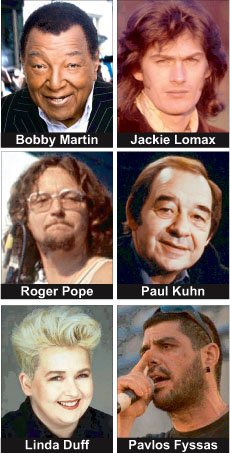
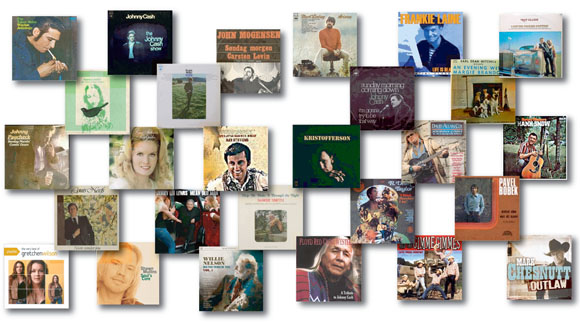



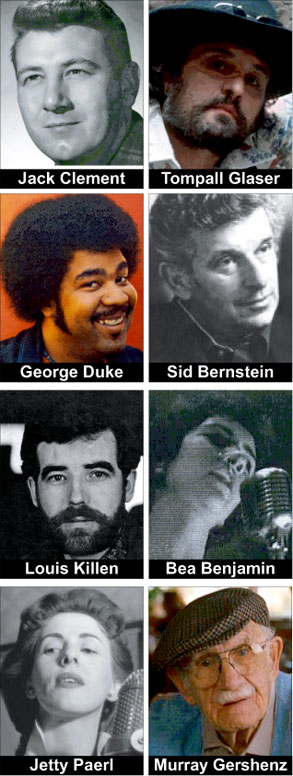
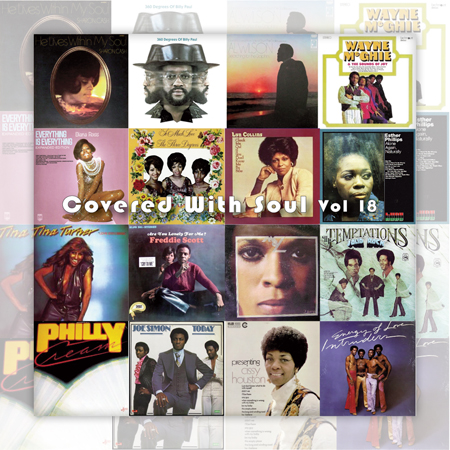

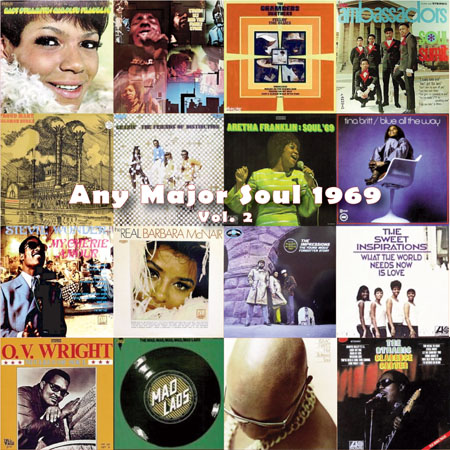
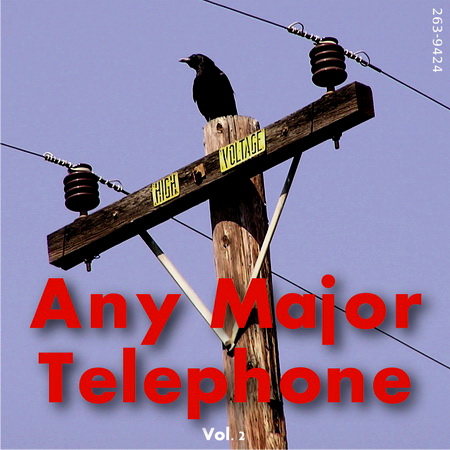


Recent Comments